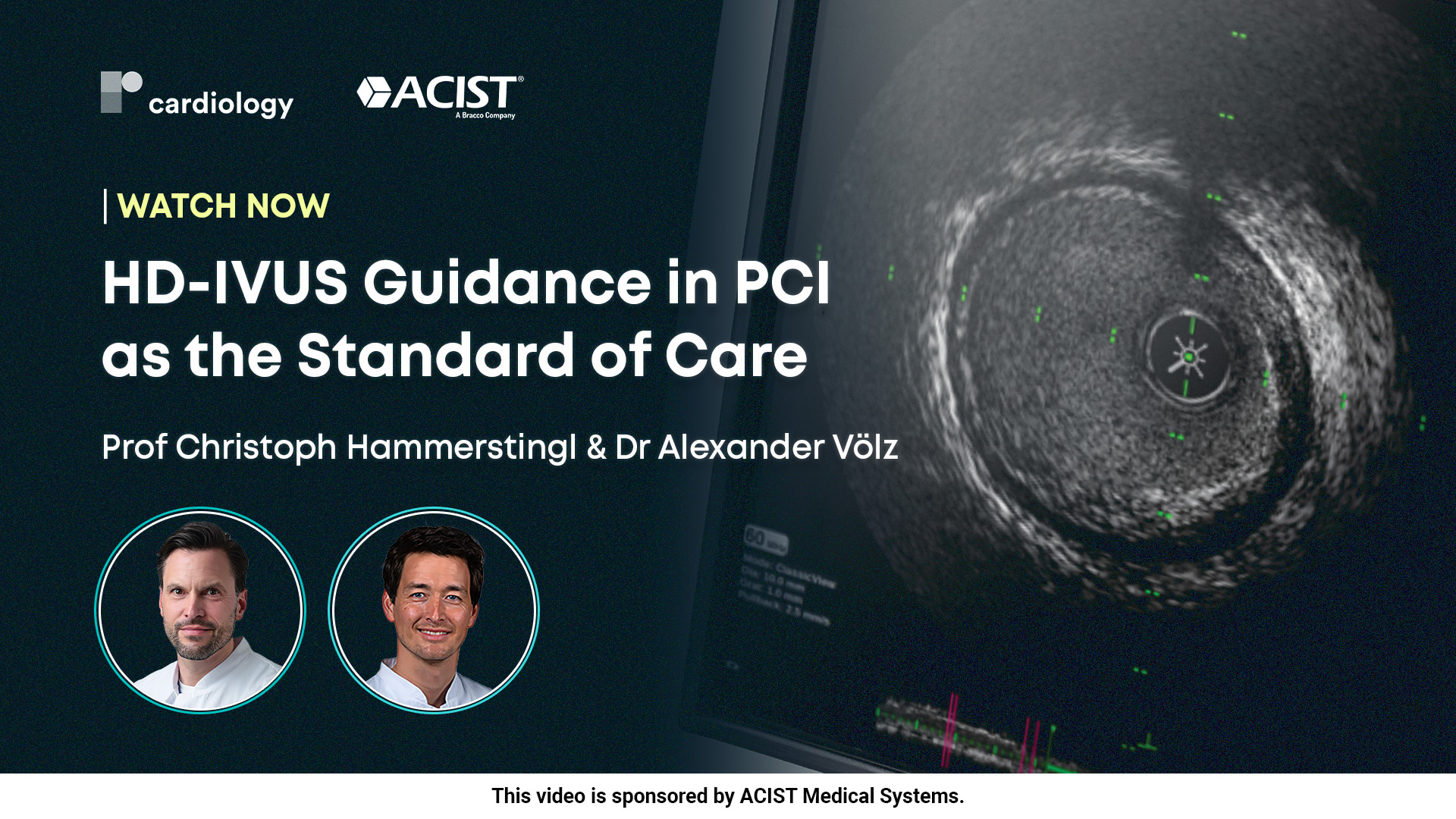HD-IVUS Guidance in PCI as the Standard of Care
Published: 11 December 2023
-
Views:
 2375
2375
-
Likes:
 7
7
-
Views:
 2375
2375
-
Likes:
 7
7
Overview
Clinical data shows that routine use of intravascular imaging improves clinical outcomes of patients undergoing PCI. It delivers critical anatomical information pre and post-stenting. Thereby, HD-IVUS enables “high-precision” interventional therapy. Intravascular imaging should become the standard of care, not just for complex PCI procedural guidance.

Learning Objectives
- To learn about the advantages and disadvantages of IVUS vs OCT
- To learn the limits of angiography in displaying crucial anatomical information in your patient and its potential prognostic impact
- To get to know new features of HD-IVUS such as co-registration with angiography
- To be able to plan your interventional strategy according to IVUS-guided measurements
More from this programme
Part 1
HD-IVUS Guidance in PCI as the Standard of Care
Faculty Biographies

Christoph Hammerstingl
Head of the department of Internal Medicine and Cardiology
Prof Christoph Hammerstingl is Head of the Department of Internal Medicine and Cardiology at the Eduardus Hospital in Cologne, DE. He started his career at the University Hospital in Bonn, where he established interventional echocardiography since 2010 for the treatment of mitral and tricuspid valve disease. As an interventionalist he proctored structural cases all over Europe and North America. He has over 150 scientific publications focussed on the outcomes of minimal invasive therapies of the AV valves, interventional and medical strategies for stroke prevention.

Alexander Völz
Consultant Interventional Cardiologist
Dr Alexander Völz is a consultant interventional cardiologist at Eduardus Hospital, Cologne, DE. He is Head of the Cardiac Catheterisation Laboratory.
Dr Völz completed his medical training at GFO-Kliniken Bonn, Germany, where he specialised in interventional cardiology and cardiac imaging (Cardiac MRI and echocardiography). Dr Völz is a member of the European and German Society of Cardiology and part of the Editorial Review Team of PCR MyToolkit.







Comments